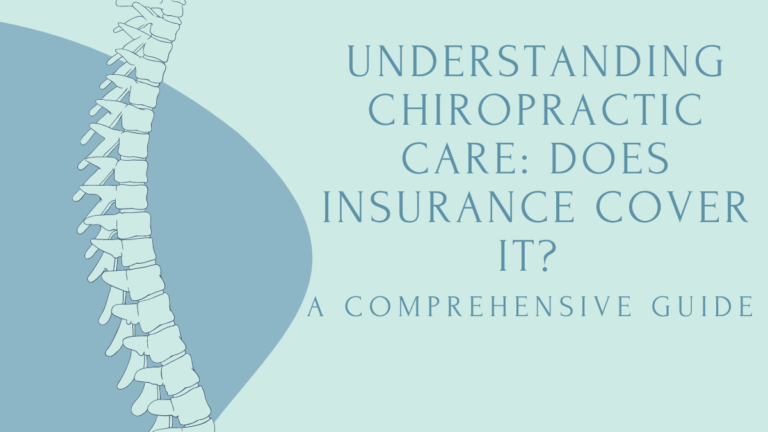Unpacking the Truth: Does Urgent Care Accept Insurance? A Comprehensive Breakdown

Welcome to a blog post that aims to unravel one of the most common questions about urgent care: does urgent care accept insurance? We understand how crucial it is for you to have affordable and accessible healthcare options in today’s world.
That’s why we’ve undertaken a comprehensive breakdown of this topic, so you can make informed decisions when seeking medical attention. Get ready to unpack the truth behind whether urgent care centers accept insurance and discover everything you need to know before your next visit!
Table of Contents
What is Urgent Care?
Urgent care is a type of medical clinic that offers short-term care for patients who need immediate attention but don’t require an overnight stay or surgery. Emergency care clinics are typically open between 8 am and 10 pm, making them convenient for people who work shifts or have busy schedules.

Urgent care clinics typically accept insurance, although some lower-cost clinics may not be accepting any form of payment. Some emergency care clinics also offer discounts to military members and the uninsured.
Most emergency care clinics offer basic services such as screenings for viruses and injuries, treatment of common colds and flu, minor surgeries, and diagnosis of dental problems. They may also provide more extensive services such as back pain relief, treatment for seizures, and chemotherapy visits for cancer patients.
What does Urgent Care Do?
Urgent care is a type of medical care that provides treatment for conditions that are not life-threatening, but require attention quickly. Emergency care centers typically offer services such as walk-in clinics, short wait times, and same day appointments. While many urgent care centers accept insurance, there is no guarantee that every center will do so.
Some factors to consider when determining whether or not a center accepts insurance include the type of coverage offered and the price of services. Some centers may only accept certain types of insurance, while others may have lower prices for Medicare and Medicaid patients. In order to find out if a center accepts your specific insurance, it is important to ask before arriving at the clinic.
In general, most emergency care centers will accept most forms of health insurance. However, there may be some exceptions based on the specific services offered at the clinic. If you are unsure about whether or not a center accepts your health insurance, it is best to inquire before arriving.
Types of Coverage Urgent Care Has
Urgent care is a type of short-term care that is available at walk-in clinics and some emergency rooms. emergency care can provide medical attention for patients who need it right away, but it isn’t always covered by insurance. Depending on the policy, some types of urgent care may be covered while others may not be. Here’s a breakdown of the different types of coverage and whether or not they accept insurance:
- Walk-in clinics: These clinics can provide short-term care for patients who don’t have insurance or need immediate medical attention. These clinics can provide short-term care for patients who don’t have insurance or need immediate medical attention.
- Emergency rooms: This is the most common type of emergency care, and it’s usually covered by insurance. However, coverage may vary depending on the policy. This is the most common type of urgent care, and it’s usually covered by insurance. However, coverage may vary depending on the policy.
- Urgent care centers: These centers specialize in treating emergency medical problems. They may be covered by insurance, but they often charge a fee for their services. This is just a general overview of the different types of coverage and how they relate to emergency care. Specific policies may have different rules governing coverage, so it’s important to check with your insurer before seeking treatment at an emergency care center or walk-in clinic.
How much does Urgent Care Cost?
Urgent Care is a great option for when something isn’t quite as serious as an emergency but needs to be addressed right away. However, before you go rushing off to the nearest clinic, it’s important to know if they accept your insurance.
In general, emergency Care does accept insurance. However, there are a few caveats that should be noted first. First and foremost, not all clinics are created equal – some may only accept certain types of insurance payouts, while others may require that you visit during business hours.
Additionally, since Urgent Care is often seen as an affordable solution for minor health concerns, some insurers may not cover all of the costs associated with visits to this type of clinic. so be sure to ask your insurer about any specific coverage limitations beforehand.
Though accepting insurance is generally possible at most emergency Care clinics, there are a few factors that you’ll want to take into account before making the trip. By understanding your specific policy particulars, you can maximize the benefits and reduce any financial burden associated with urgent care visits.
Does Urgent Care Accept Insurance?
Urgent care is a type of doctor’s office that provides quick and short-term treatment for health issues. Because it’s temporary, emergency care can be a great option for people who don’t have time to wait for an appointment with their primary care doctor.
However, because urgent care is often considered less serious than other types of doctors’ offices, it may not be accepted by many insurance plans. In fact, just about every major insurer has some sort of exclusion or limitation on coverage for emergency care visits.
Here are the most common types of insurance exclusions for emergency care:
- Private health insurance plans usually have limitations on coverage for out-of-network providers. This means that if you try to use an emergency care facility that isn’t covered by your health insurance plan, you might be responsible for the costs yourself.
- Public health programs like Medicaid typically have no exclusions on coverage for emergency care services, but note that you may still have to pay out-of-pocket expenses such as co-payments and deductibles.
- Employer-sponsored health insurance also typically has some form of exclusion or limitation on coverage for out-of-network providers. However, this can vary significantly from one employer to another—so it’s always a good idea to ask your human resources representative about any specific policy restrictions before seeking emergency care assistance.
- Coverage limitations like these can make Ur gent Care an expensive option, especially if you need to visit multiple times in a short period of time. If this is a problem for you, it may be worth considering getting private health insurance or finding another way to cover the costs of emergency care visits.

Conclusion
If you’re in need of emergency care, it can be a nerve-wracking experience trying to figure out if your insurance will cover the cost. In this comprehensive breakdown, we’ll unpack the truth about whether or not emergency care accepts insurance as well as give you some tips on how to navigate the process should you find yourself in that situation. So whether you’re uninsured or have health insurance that doesn’t cover emergency care, read on for all the information you need!






